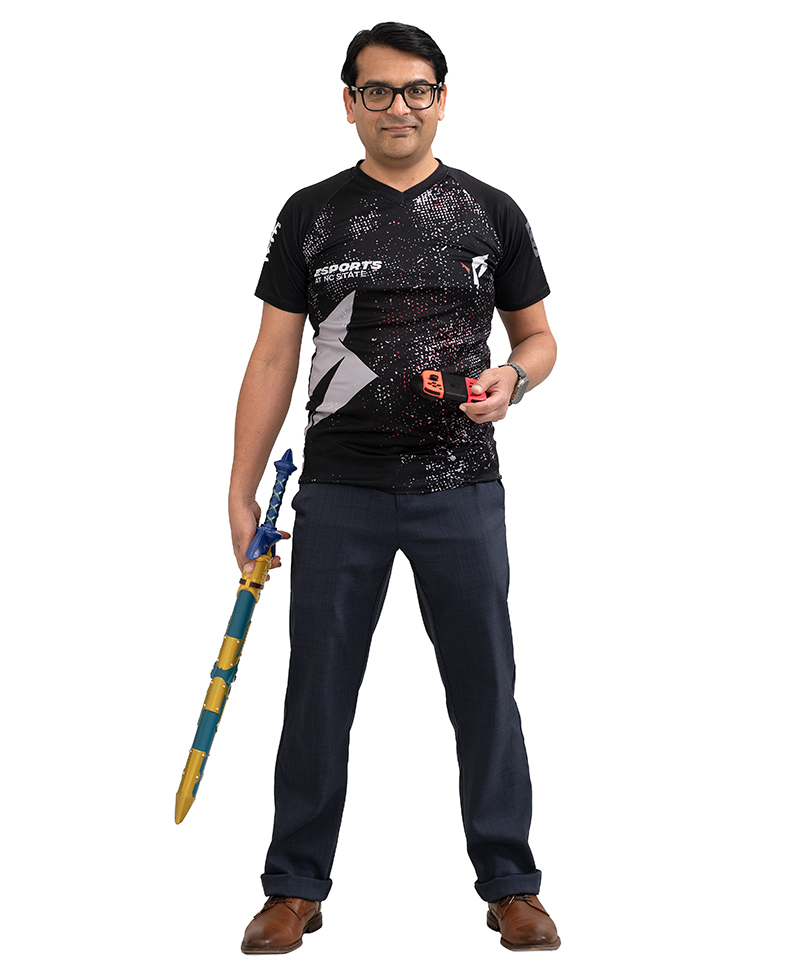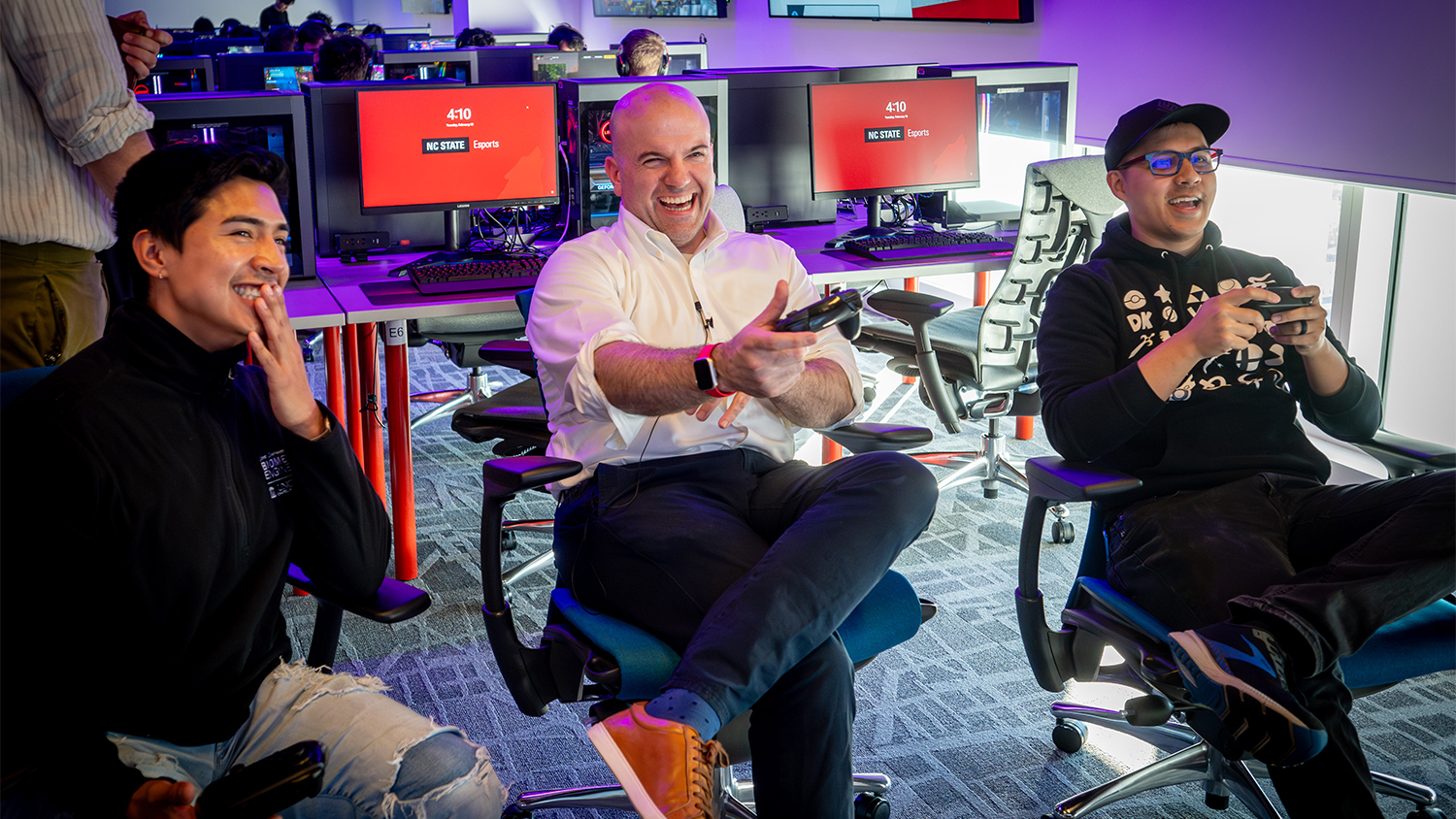Q&A: Questions for Arnav Jhala
Arnav Jhala, associate professor in the Department of Computer Science, is the faculty advisor for NC State University’s Esports Club and has helped in the planning and development of the new Gaming and Esports Lab. Currently on sabbatical, he is a co-founder of Jabali, a company building an AI engine to democratize video game design.

How did you get involved in esports research and program development?
As a graduate student at NC State, I was a teaching assistant for the game development class in 2004. This was just before our official game development concentration was established. I joined the faculty in 2016 and have been managing the curriculum for the game development program along with colleagues on the department’s undergraduate programs team. My research has spanned several areas of games including AI-assisted design, reinforcement learning for games and gameplay analytics.
Please describe the Gaming and Esports Lab.
The esports and gaming spaces within Engineering Building III and the James B. Hunt Jr. Library serve as pioneering hubs where we can lay the foundation for programs and research initiatives. Esports is rapidly gaining popularity in the realm of media, and we are poised to extend the legacy of our campus and state’s athletic dominance into this exciting new frontier. By championing esports, we not only acknowledge the burgeoning community within our student body but also seize the opportunity to shape the future workforce. From game development to cloud computing, cybersecurity to content production, our aim is to cultivate talent and expertise that will drive innovation and success in this dynamic industry.
Why is NC State well-positioned to step into a leadership role in growing collegiate esports programs and research?
Building a thriving, comprehensive esports program at a state university campus necessitates several key components: a vibrant student community, robust engagement and support from all levels of administration, an interdisciplinary group of faculty members deeply committed to integrating esports into their research and outreach endeavors, backing from the university administration and state legislature, and enthusiasm from private institutions. It is this unique combination that positions us to assume a leadership role in the esports landscape.

How does the College of Engineering fit into this program?
Several departments offer cutting-edge research and curricula in pertinent fields such as game development, computer graphics, software engineering, networking, human-computer interaction, ergonomics, social media analytics and educational gaming.
Will the esports program influence existing academic programs?
The esports program, along with the resources available, will significantly increase our ability to innovate in curriculum development, such as the introduction of developing networked multiplayer games for computer science students in the game development concentration, setting up highly instrumented multi-user interfaces for the study of skilled human-computer interaction and adding to our campus strength in digital transformation of education.
What is your favorite game to play and/or watch?
I watch League of Legends and Smash, and it was great to be at the spring finals last year at PNC Arena. While I have many favorites across genres, the Legend of Zelda series has consistently given me joy in terms of interaction design, art, music and narrative. As a bansuri flutist, Spirit Tracks’ soundtrack is my favorite. Currently I am playing Hades and Sea of Stars with my children.
- Categories:


